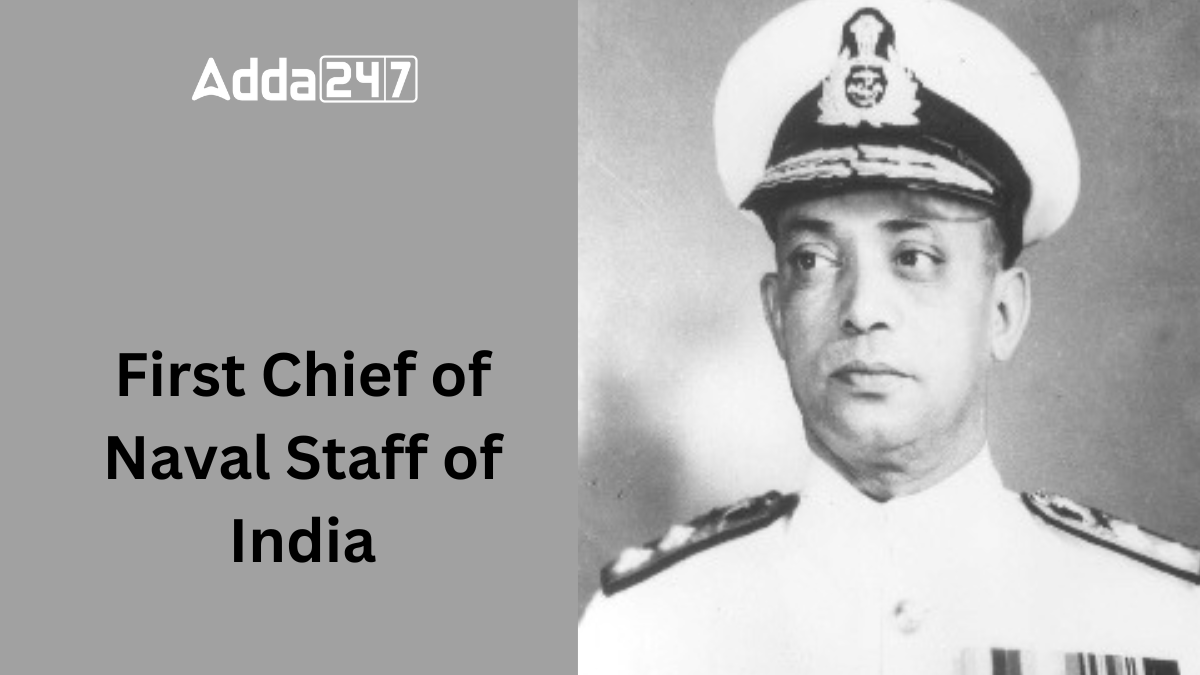Admiral Ram Dass Katari was a pioneering figure in the Indian Navy. As the first Indian to become the Chief of Naval Staff (CNS), his tenure marked a significant transformation in the Indian Navy. His career was distinguished by many “firsts,” including being the first Indian officer to attend the Imperial Defence College and command the Indian Navy.
Who was the First Chief of Naval Staff of India?
The first Chief of Naval Staff of India was Admiral Ram Dass Katari, appointed on 22 April 1958. His appointment marked a significant milestone as he was the first Indian to hold this position, succeeding the last British officer, Vice Admiral Sir Stephen Hope Carlill. Admiral Katari’s tenure saw pivotal developments, including the commissioning of India’s first aircraft carrier, INS Vikrant, and the liberation of Goa.
Early Life and Education of Admiral Ram Dass Katari
Admiral Katari was born in Chingleput, Madras Presidency, on 8 October 1911. His father was an Assistant Civil Engineer. Raised primarily in Hyderabad, Katari received his early education at Mahbub College High School and Nizam College.
Naval Career Beginnings of Admiral Ram Dass Katari
Katari’s naval career began with a focus on the mercantile marine, where he joined the Hooghly River Survey and later served with distinction on several naval vessels. During World War II, he served on various ships, including HMIS Sandoway and HMIS Dalhousie, and specialized in anti-submarine warfare. His leadership in clearing mines in the Andaman and Nicobar Islands was particularly noteworthy.
Post-Independence Service
After India’s independence, Katari commanded several important naval vessels, including HMIS Kistna during the integration of Junagadh. His role as the executive officer of INS Delhi and later as the Chief of Personnel at Naval Headquarters underscored his growing influence in the Indian Navy.
Promotions and Key Roles of Admiral Ram Dass Katari
In 1951, Katari took command of INS Rajput and the 11th Destroyer Flotilla. His educational experience at the Imperial Defence College in 1953 marked him as the first Indian naval officer to attend the prestigious course. Returning to India, he was appointed Deputy Commander-in-Chief and later became the Flag Officer (Flotillas) Indian Fleet in 1956, making him the first Indian to command the Indian Fleet.
Chief of Naval Staff
In February 1958, Katari was appointed the first Indian Chief of Naval Staff. His tenure saw significant developments, including the commissioning of INS Vikrant, India’s first aircraft carrier. His leadership was crucial during the liberation of Goa in 1961, reflecting his strategic acumen and commitment to India’s maritime interests.
Admiral Ram Dass Katari – Later Life and Contributions
Post-retirement, Katari served as Chairman of the Andhra Pradesh State Road Transport Corporation (APSRTC) and as India’s Ambassador to Burma from 1964 to 1969. He was also known for his contributions to literature, including a memoir on the Indian Navy’s formative years. The Admiral R.D. Katari Trophy and the annual ADM RD Katari Memorial Lecture are among the tributes to his legacy.
Death and Legacy of First Chief of Naval Staff
Admiral Katari passed away on 21 January 1983 in Secunderabad. His legacy is honored through various memorials, including the Katari Memorial Hall, Admiral RD Katari Marg, and the naming of several naval facilities after him. His pioneering contributions to the Indian Navy continue to inspire future generations.




 Which District is known as the Medical C...
Which District is known as the Medical C...
 Which was the First Women's University i...
Which was the First Women's University i...
 Which Island is known as the Island of P...
Which Island is known as the Island of P...








